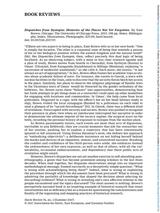
Oushakine, Serguei Alex. “A Review of Kate Brown’s ‘Dispatches from Dystopia: Histories of the Places Not Yet Forgotten Place.’.” Slavic Review 76.2 (2017): 504–505.
Abstract
Brown’s dispatches are not yet another exercise in self-absorbing autoethnography, a genre that has become prominent among scholars in the last three decades. When read together, her disparate observations merge into an important methodological message, framed succinctly as a deceptively simple question: “What is wrong with acknowledging being there?” Indeed, what is wrong in explaining the procedure through which the documents have been procured? What is wrong in admitting the partiality of knowledge that shaped the decision about selecting (or discarding) evidence? What is wrong in revealing one’s own affective relation to the people encountered and the topics discussed? The short answer is nothing. Brown’s perceptively-narrated book is an inspiring example of historical research that treats uncertainties not as deficiency but as a reason for questioning the conclusiveness and finality of the organizing and mapping practices of historical research.
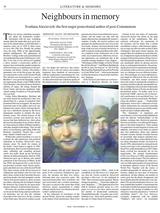
Oushakine, Serguei Alex. “Neighbours in Memory: a Book Review of Svetlana Alexievich’s "Second-Hand Time" (trans. by Bela Shayevich) and ‘Chernobyl Prayer: A Chronicle of the Future’ (trans. By Anna Gunin and Arch Tait).” The Times Literary Supplement 2016: 10–12.
Abstract
These voices of utopia, inseparable from the experience of dislocation, are a unique contribution to the literature of testimony. With her cycle Svetlana Alexievich has established herself as the first major postcolonial author of post-Communism: the daughter of a Ukrainian and Belarusian who uses the Russian language – the only language in which she is completely fluent – to collect and present, from her own subaltern perspective, subaltern accounts of the traumas inflicted by empire.
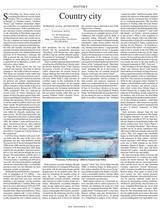
Oushakine, Serguei Alex. “Country City. A Review of Catriona Kelly’s ‘St. Petersburg: Shadows of the Past.’ Yale UP, 2014..” Times Literary Supplement (TLS) 2014: 9. Print.
Abstract
In St Petersburg: Shadows of the past, Catriona Kelly tells the story of the city’s least glamorous but also least traumatic period. Tracing the life of Soviet Leningrad from the 1950s to the 1980s and the post-Soviet transformation of St Petersburg after 1990, Kelly explores the city dwellers’ persistent inclination
to view their present through the lens of the past. The main problem, as Kelly shows, is that this past is not entirely user-friendly. “Extreme beauty is unsettling and difficult to
live with”, she writes in her preface, setting the tone for the volume. Her book is a remarkable attempt to show how this difficulty has been managed, avoided, or repressed.
to view their present through the lens of the past. The main problem, as Kelly shows, is that this past is not entirely user-friendly. “Extreme beauty is unsettling and difficult to
live with”, she writes in her preface, setting the tone for the volume. Her book is a remarkable attempt to show how this difficulty has been managed, avoided, or repressed.
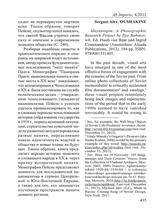
Oushakine, Serguei Alex. “A Book Review: Museutopia: A Photographic Research Project by Ilya Rabinovich, Ed. Huub Van Baar and Ingrid Commandeur (Amsterdam: Alauda Publications, 2012). 184 Pp. ISBN: 9789081531405.” Ab Imperio 4 (2012): 435–441. Print.
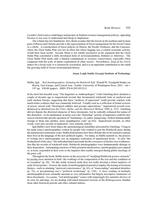
Oushakine, Serguei Alex. “A Review of Igal Halfin’s ‘Red Autobiographies: Initiating the Bolshevik Self.’ Seattle: University of Washington Press, 2011..” The Russian Review 71.3 (2011): 525–526. Print.
Abstract
Autobiographies—like the confessions from the Great Purges scrutinized in Halfin’s previous study—provide the historian with yet another angle to explore “a unique, richly elaborated system of meanings” that was the Bolshevik self. This dictates the overall structure of the book. The three main chapters outline (somewhat) different paths from darkness to light—“the Bolshevik conversion”—that were available to and were eventually mustered by the representatives of three respective groups (workers, peasants, and the intelligentsia). In each case, admission to the party was a lesson of learning “a set of stratagems for describing and classifying people.”
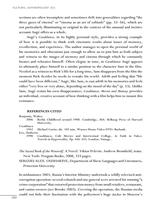
Oushakine, Serguei Alex. “Book Review. The Sacred Book of the Werewolf by Viktor Pelevin.” Cultural Anthropology 25.2 (2010): 380–385. Print.
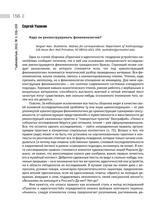
Oushakine, Serguei Alex. “Надо ли реконструировать феноменологию?.” Laboratorium 1 (2010): 156–159.
Abstract
Для меня «реконструкция феноменологии» – это симптом современного состояния «гендерного подхода». Хорошие навыки аналитического чтения, умение работать с вербальным ивизуальным материалом, способность выстроить внятный и четкий итоговый текст зачастую могут существовать вне сколько-нибудь осознанного понимания того, зачем все это делается.
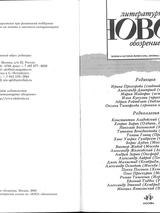
Oushakine, Serguei Alex. “Осколки военной памяти: ‘Всё, что осталось от такого ужаса?’.” Новое литературное обозрение 5 (2008): 234–241.
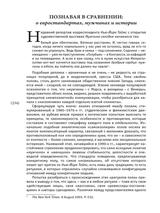
Oushakine, Serguei Alex. “Познавая в сравнении: о евростандартах, мужчинах и истории. Рецензия на книгу: Barbara Evans Clements, Rebecca Friedman and Dan Healey, Eds. Russian Masculinities in History and Culture. .” Новое литературное обозрение 64 (2003): 334–345. Print.
Abstract
Новизна нынешних дискуссий о «смысле пола» не в их тематике, а, скорее, в масштабе. Выйдя за пределы традиционных дисциплин (психология, антропология, сексология и т.п.), дебаты «про это» породили мощный поток художественной, публицистической, мемуарной, автобиографической, литературно-критической и обществоведческой литературы, фиксирующей разнообразные нюансы женского или, соответственно, мужского в нашем прошлом и настоящем. Книга, о которой пойдет речь, является естественным проявлением этой общей тенденции. этой общей тенденции.
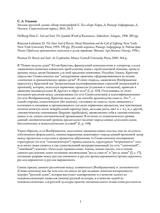
Oushakine, Serguei Alex. “Загадки ‘русской души’: Обзор монографий Е. Хеллберг-Хирн, Д. Ранкур-Лаферрьера, Д. Песмен.” Социологический журнал 1 (2001): 1–9. Print.
Abstract
Рецензируются книги: Hellberg-Hirn E. Soil and Soul: The Symbolic World of Russianness. Aldershot: Ashgate, 1998. 289 pp.
Rancour-Laferriere D. The Slave Soul of Russia: Moral Masochism and the Cult of Suffering. New York: New York University Press, 1995. 330 pp. (Русский перевод: Ранкур-Лаферрьер Д. Рабская душа России: Проблемы нравственного мазохизма и культ страдания. Москва: Арт-Бизнес-Центр, 1996.)
Pesmen D. Russia and Soul: An Exploration. Ithaca: Cornell University Press, 2000. 364 p
Rancour-Laferriere D. The Slave Soul of Russia: Moral Masochism and the Cult of Suffering. New York: New York University Press, 1995. 330 pp. (Русский перевод: Ранкур-Лаферрьер Д. Рабская душа России: Проблемы нравственного мазохизма и культ страдания. Москва: Арт-Бизнес-Центр, 1996.)
Pesmen D. Russia and Soul: An Exploration. Ithaca: Cornell University Press, 2000. 364 p

